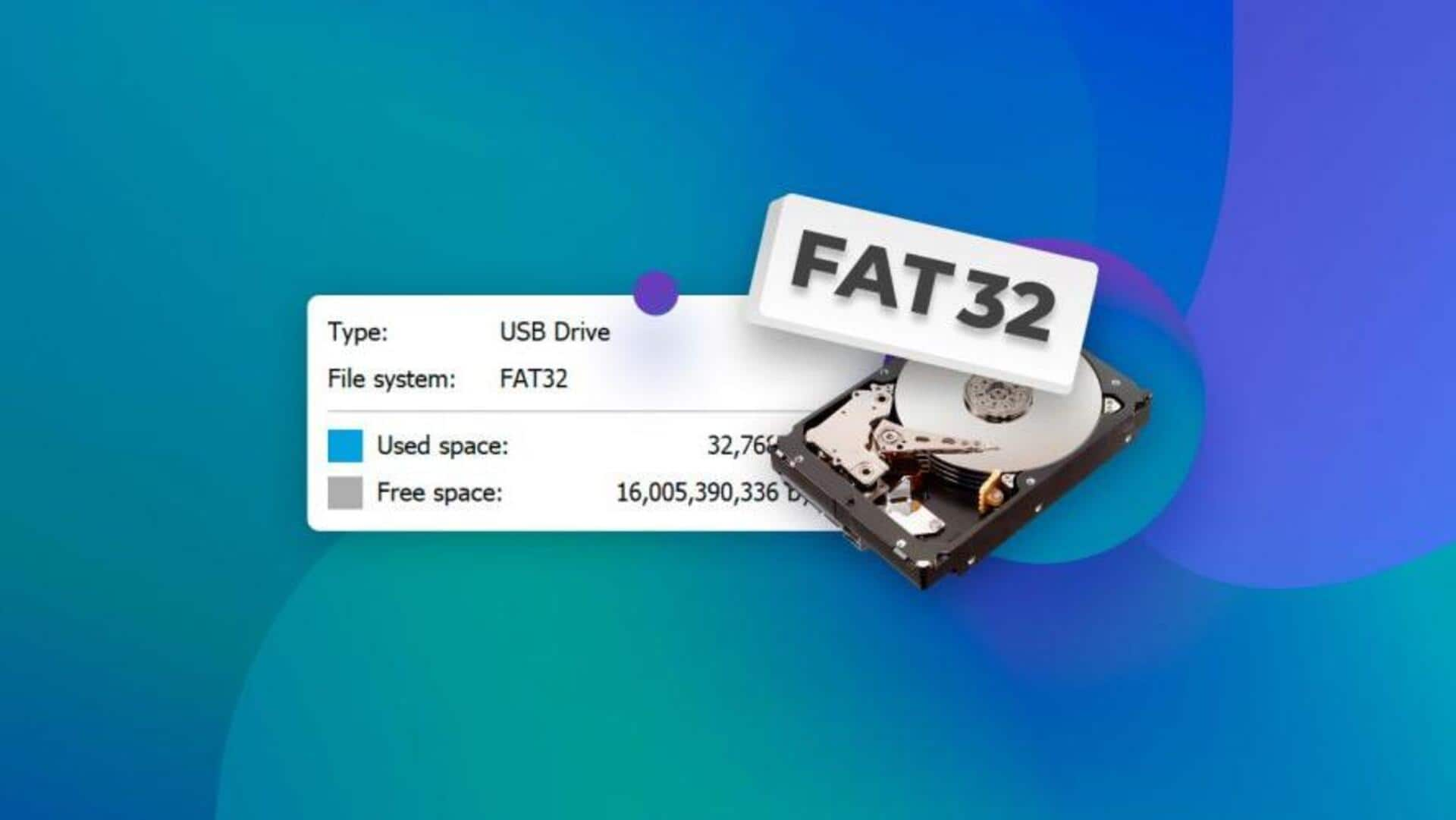
After 30 years, Microsoft finally removes FAT32 storage limitations
What's the story
Microsoft has announced plans to eliminate the longstanding 32GB size restriction for FAT32 partitions in its upcoming Windows 11 update. "When formatting disks from the command line using the format command, we've increased the FAT32 size limit from 32GB to 2TB," Microsoft disclosed in a recent blog post, detailing the latest Windows 11 canary test build. Despite FAT's capacity to support volumes up to 2TB, an arbitrary limit of 32GB has been enforced by Windows for nearly three decades.
Implementation
Change only applies to command line formatting
The removal of the 32GB limit is currently only applicable when formatting disks from the command line using the format command. The existing format dialog box will continue to uphold this restriction unless Microsoft decides to update this long-neglected feature. This change was first implemented during Windows 95's development by former Windows developer Dave Plummer, who also selected the 32GB limit for FAT32.
Developer's reasoning
Plummer's reasoning behind the 32GB limit
Plummer had to determine an acceptable level of 'cluster slack,' which ultimately led to the 32GB format size restriction for a FAT volume. He confessed in a post on X that this limit was an arbitrary decision made one morning and has since become a permanent fixture in the system. Despite this, Windows has long been capable of reading FAT32 partitions up to 2TB in size but creating such partitions within the OS required third-party tools until now.
Future plans
Microsoft may update format GUI in future builds
There is hope that Microsoft will update the format GUI in future Windows 11 builds, making it easier for users to create full FAT32 partitions. However, even with the extended partition limit for FAT32, a 4GB size restriction remains on individual files stored on a FAT32 volume. Despite being less popular than alternatives like exFAT today, many older devices still rely on USB drives or SD cards formatted with FAT32.